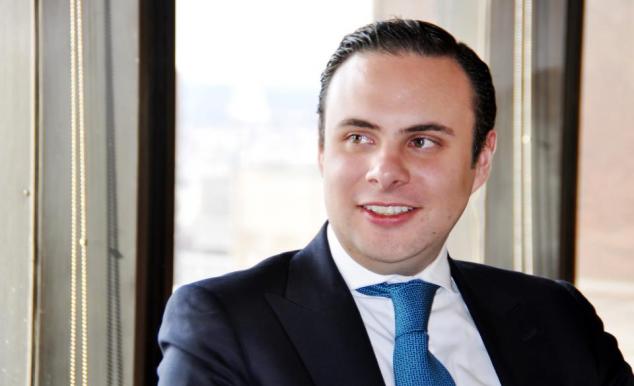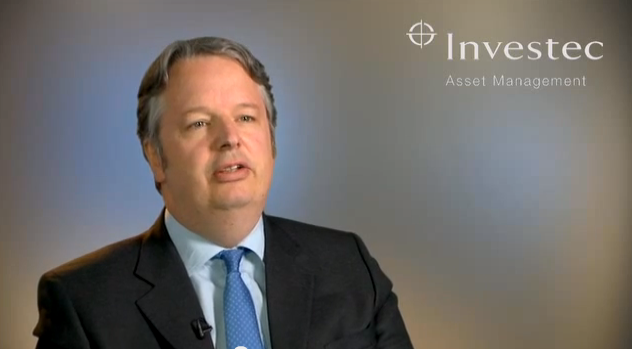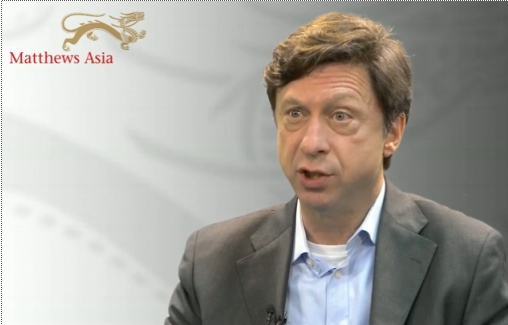Global private financial wealth grew by 14.6 percent in 2013 to reach a total of $152.0 trillion, according to The Boston Consulting Group. (See Exhibit 1.) The rise was stronger than in 2012, when global wealth grew by 8.7 percent. The key drivers, for the second consecutive year, were the performance of equity markets and the creation of new wealth in RDEs.
The growth of private wealth accelerated across most regions in 2013, although it again varied widely by market. As in 2012, the Asia-Pacific region (excluding Japan) represented the fastest-growing region worldwide, continuing the trend of high growth in the “new world.” But substantial double-digit increases in private wealth were also witnessed in the traditional, mature economies of the “old world,” particularly in North America. Double-digit growth was also seen in Eastern Europe, the Middle East and Africa (MEA), and Latin America. Western Europe and Japan lagged behind with growth rates in the middle single digits.
As in previous years, North America (at $50.3 trillion) and Western Europe ($37.9 trillion) remained the wealthiest regions in the world, followed closely by Asia-Pacific (excluding Japan) at $37.0 trillion. Asia-Pacific, which in 2008 had 50 percent less private wealth than North America, has since closed that gap by half. Globally, the amount of wealth held privately rose by $19.3 trillion in 2013, nearly twice the increase of $10.7 trillion seen in 2012.
In nearly all countries, the growth of private wealth was driven by the strong rebound in equity markets that began in the second half of 2012. All major stock indexes rose in 2013, notably the S&P 500 (17.9 percent), the Nikkei 225 (56.7 percent), and the Euro Stoxx 50 (14.7 percent). This performance was spurred by relative economic stability in Europe and the U.S. and signs of recovery in some European countries, such as Ireland, Spain, and Portugal. A further factor, despite the tapering of quantitative easing in the U.S., was generally supportive monetary policy by central banks. In an exception, the MSCI Emerging Markets Index fell by 5 percent.
Globally, the growth of private wealth was driven primarily by returns on existing assets. The amount of wealth held in equities grew by 28.0 percent, with increases in bonds (4.1 percent) and cash and deposits (8.8 percent) lagging behind considerably. As a result, asset allocation shifted significantly toward a higher share of equities. Currency developments were more relevant to private wealth growth in 2013 than in 2012. Driven by the slowdown in quantitative easing, the U.S. dollar gained value against many currencies, particularly those in emerging markets, as well as against the Japanese yen.
As in previous years, strong growth in gross domestic product (GDP) in RDEs was an important driver of wealth. The BRIC countries, overall, achieved average nominal GDP growth of nearly 10 percent in 2013.
Looking ahead, global private wealth is projected to post a compound annual growth rate (CAGR) of 5.4 percent over the next five years to reach an estimated $198.2 trillion by the end of 2018. The Asia-Pacific region and its new wealth will account for about half of the total growth. Continued strong GDP growth and high savings rates in RDEs will be key drivers of the rise in global wealth.
Assuming constant consumption and savings rates, North America will fall to a position as the second-largest wealth market in 2018 (a projected $59.1 trillion), being overtaken by Asia-Pacific (excluding Japan) with a projected $61.0 trillion. Western Europe should follow with a projected $44.6 trillion.
Millionaires
As the debate over the global polarization of wealth rages on, one thing is certain: more people are becoming wealthy. The total number of millionaire households (in U.S. dollar terms) reached 16.3 million in 2013, up strongly from 13.7 million in 2012 and representing 1.1 percent of all households globally. The U.S. had the highest number of millionaire households (7.1 million), as well as the highest number of new millionaires (1.1 million). Robust wealth creation in China was reflected by its rise in millionaire households from 1.5 million in 2012 to 2.4 million in 2013, surpassing Japan. Indeed, the number of millionaire households in Japan fell from 1.5 million to 1.2 million, driven by the 15 percent fall in the yen against the dollar.
The highest density of millionaire households was in Qatar (175 out of every 1,000 households), followed by Switzerland (127) and Singapore (100). The U.S. had the largest number of billionaires, but the highest density of billionaire households was in Hong Kong (15.3 per million), followed by Switzerland (8.5 per million).
Wealth held by all segments above $1 million is projected to grow by at least 7.7 percent per year through 2018, compared with an average of 3.7 percent per year in segments below $1 million. Ultra-high-net-worth (UHNW) households, those with $100 million or more, held $8.4 trillion in wealth in 2013 (5.5 percent of the global total), an increase of 19.7 percent over 2012. At an expected CAGR of 9.1 percent over the next five years, UHNW households are projected to hold $13.0 trillion in wealth (6.5 percent of the total) by the end of 2018.
Wealth managers must develop winning client-acquisition strategies and differentiated, segment-specific value propositions in order to succeed with HNW and UHNW clients and meet their ever-increasing needs.
Regional Variation
Strong equity markets helped countries in the old world, which have large existing asset bases, to match the rapid growth in assets in the new world, which relies more on new wealth creation spurred by GDP growth and high savings rates. For example, private wealth grew by double digits in the U.S. and Australia, while some emerging markets, such as Brazil, showed substantially weaker growth. China will continue to consolidate its position as the second-wealthiest nation, after the U.S.
In North America, private wealth in North America rose by 15.6 percent in 2013 to $50.3 trillion, driven by the strong growth of wealth held in equities and moderate nominal GDP growth of 3.5 percent. Wealth grew by 16.3 percent in the U.S., while growth in Canada was considerably slower at 8.4 percent owing to weaker stock-market returns and a lower share of directly held equities.
In Western Europe, private wealth in Western Europe rose by 5.2 percent to $37.9 trillion in 2013, the subpar performance partly reflecting low GDP growth. The amount of wealth held in equities rose by 17.1 percent, compared with 2.3 percent for cash and deposits and a decline of 3.1 percent in bonds.
In Asia-Pacific (excluding Japan), private wealth in Asia-Pacific (excluding Japan) rose by 30.5 percent to $37.0 trillion in 2013. Strong nominal GDP growth in both China (9.6 percent) and India (14.2 percent), as well as high savings rates in those countries—16.8 percent and 19.2 percent of GDP, respectively—were the principal drivers. The amount of wealth held in equities gained 48.0 percent, compared with 30.4 percent for bonds and 21.3 percent for cash and deposits.
In Latin America, at constant exchange rates, private wealth in Latin America continued to achieve double-digit growth in 2013, rising by 11.1 percent to $3.9 trillion. However, taking into account the currency devaluations in many Latin American countries—such as Brazil (down 13 percent), Argentina (down 37 percent), and Chile (down 9 percent)—private wealth in the region declined in 2013. Below-average growth was observed in the larger countries in the region. Private wealth rose by 10.7 percent in Mexico and 5.6 percent in Brazil (where it was up 14.1 percent in 2012), driven by a weakening of local bond and stock markets. Regionwide, riding developments in other regions, the amount of private wealth held in equities rose strongly by 19.6 percent, compared with 9.4 percent for bonds and 10.4 percent for cash and deposits. There were significant differences between the changes in onshore wealth (up 7.1 percent) and offshore wealth (up 23.5 percent)—attributable mainly to net inflows from countries such as Argentina and Venezuela and attractive returns from offshore investments. With a projected CAGR of 8.8 percent, private wealth in Latin America will reach an estimated $5.9 trillion by the end of 2018.









